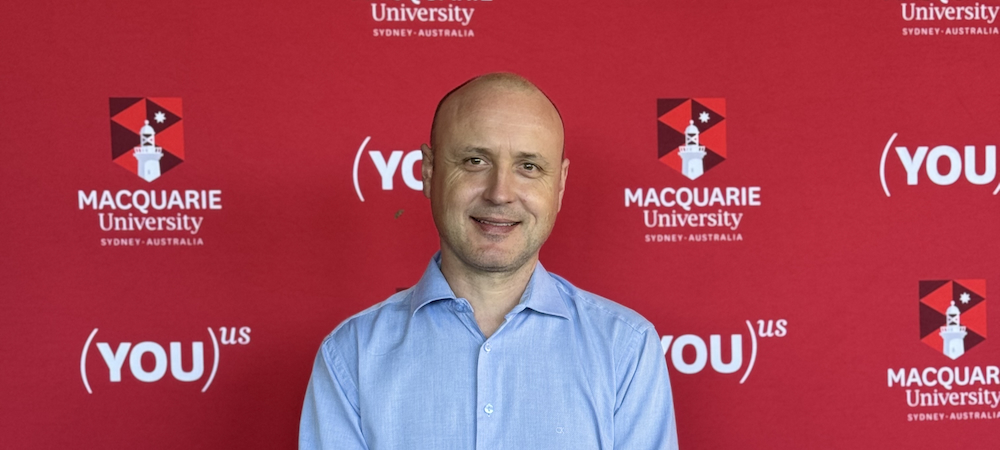Profiling the School of MAPS
We talk to Professor Samuel Muller, head of the School of Mathematical and Physical Sciences (MAPS) about seven research groups making up the School, and current priorities for teaching, research and engagement.
Give us a short overview of teaching in the School of Mathematical and Physical Sciences
We have 75 academic staff across the disciplines of Astronomy, Mathematics, Physics and Statistics. We are particularly proud of the hard work done by our service teaching staff, who are dedicated and innovative academics. Around 7000 students enrol with us each session, 65 per cent in the area of statistics. Our signature undergraduate degrees offer Bachelor of Science students a choice of four majors, one from each of our four disciplines. We also offer a Master of Applied Statistics and jointly deliver a Master of Data Science with the School of Computing. We have around 20 Masters of Research students and a solid PhD cohort of 80 or so students. One-third of our postgraduates identify as female and the majority are international students.
 What are the key research themes coming out of the School?
What are the key research themes coming out of the School?
Our Director of Research, Professor Judith Dawes, summarises what we do perfectly:
We are Mathematicians, Astronomers, Physicists and Statisticians, who use abstract theories and practical applications to solve problems in many fields.
We create models, measure and observe the behaviour of the universe at all scales. We seek to understand and predict patterns in data, model the underlying structure or dynamics of systems, and create new knowledge.
Our School is organised into seven research groups:
- Analysis:
This includes mathematical formulations of physical situations such as the advanced study of curvature flows and its applications in physics and geometry. - Astronomy, astrophysics and astrophotonics:
We have particular scale here and strong links internationally, nationally and internally with Australian Astronomical Optics (AAO) - Category theory:
Macquarie's category theory group has been world-renowned since the 1970s, with new strengths in differential categories and categorical representation theory. - Photonics:
One example of our expertise in the science and technology of light, is the laser-based system developed by Prof Helen Pask’s group to measure temperature and salinity as a function of depth in ocean waters. This work has application in environmental water monitoring and defence maritime surveillance. - Quantum information science:
Researchers at Macquarie’s Centre for Quantum Engineering develop algorithms to run on future quantum computers, with applications ranging from advanced materials design to quantum chemistry and finance. Active industry collaborators include Google (computing) and BTQ (communications). - Statistical modelling for complex data:
Examples include research addressing very large data sets from health and the environment. - Waves, dynamics and modelling:
Our researchers use mathematical and computational methods to explore physical phenomena from the natural world, from fluid dynamics, ecology and biology, to electromagnetism and other physical systems.
Tell us about a recent achievement you’re proud of
The School has just received a Pleiades Bronze Award from the Astronomical Society of Australia which recognises Australian and New Zealand astronomy organisations taking active steps to advance the careers of women. Our School has essentially started from the beginning again post-merger, after our previous Department of Physics and Astronomy reached Silver in the program, and I was very pleased that the ASA-IDEA Chapter Committee commended our "unwavering commitment to upholding the values of the Pleiades.”
We have passion for equity, diversity and inclusion, and we’re determined to uphold an environment that is positive for women in STEM disciplines and to grow the proportion of women across all levels of appointment. I am proud that from the 15 appointments made since the inception of the School, 12 identified as female and three as male.
What will be your focus for the rest of the year?
Every portfolio in our School is committed to achieving our strategic aims for 2023.
Our operations teams will create more functional spaces, overhaul the School websites and SharePoint, and improve the financial management of grants. Our EDI team will progress the actions in our Pleiades application, and we will shift our WHS focus from compliance towards a culture where WHS is a natural part of day-to-day operations.
In research we will continue our many activities to further engage strategically with industry.
In Education, we’re establishing a valuable Industry Advisory Board and working towards reaccreditation and review of our degrees.
And our key focus in outreach and engagement this year lies in attracting and retaining high-potential undergraduate and postgraduate students, via programs that engage high school students through campus visits and events, and internships connecting prospective to our academics.